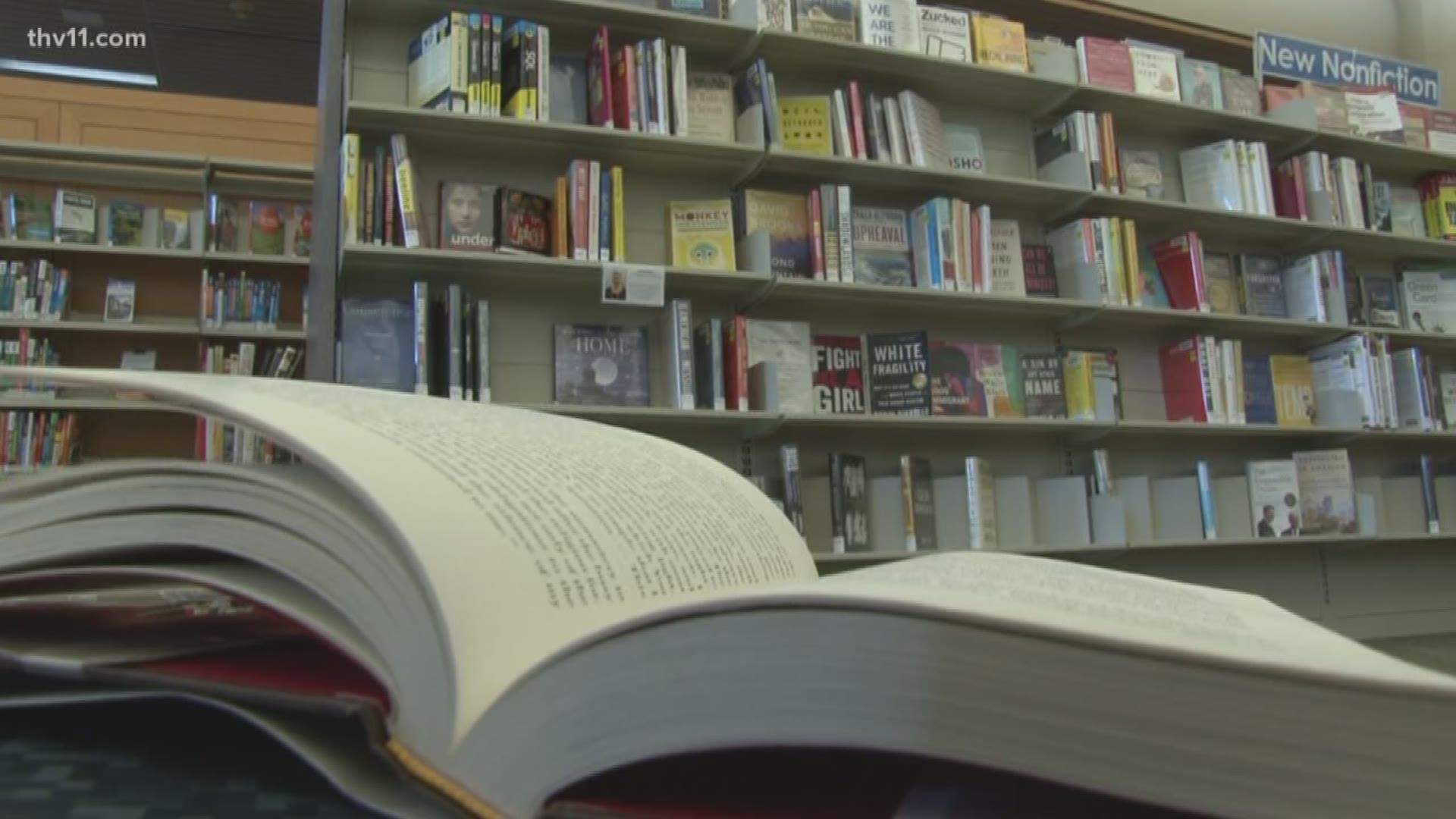LITTLE ROCK, Ark. — Gone are the days where everyone sits down to indulge in their favorite book and is physically flipping through the pages.
The popularity of e-books continues to grow year after year, but so does the cost. This new trend is putting local libraries in a bind.
Nathan James, Executive Director for Technology and Collection Innovation for the Central Arkansas Library System, said this has been a nationwide issue for the past couple of years.
James said what many people don't realize is libraries pay about four to five times more for e-books than the average consumer, this difference in cost being the root of the problem.
"It's tricky to keep up," he said.
The trend of ditching the paperbacks and latching onto e-books is starting to put pressure on avid readers' safe haven.
"We usually budget a little over half a million dollars for what we call downloadables," James said.
He said things like e-books and audiobooks are beginning to take over the Central Arkansas Library System's budget.
"The thing with these digital copies and digital uses, it just keeps going up and up and up," James said.
He said next year they are going to spend $560,000 on digital materials versus $89,000 on traditional print books.
"People just don't really realize how expensive these digital copies are," James said.
He said this is because libraries are being charged unfair prices for e-books.
For example, a typical copy of an e-book for a consumer on amazon would be around $12 compared to the libraries that have to pay between $50 to $65 per copy.
"We're really trying, we're trying to keep up with the demand, but for us it's difficult. It puts a big strain on the budget because of the much higher prices," James said.
He said the appeal for this new way of reading is showing in the stats. In October alone, CALS print usage dropped by 8% while the digital usage went up 30%.
"And it's still growing," James said.
For people like Kathryn Jones, having a book at your fingertips has never been appealing.
"I don't like having to look at a screen more than I already do during a day," she said.
Ever since she was a little girl, Jones said the feeling of holding the work of art in her hands has always been magical.
"I'm in love with the smell, who doesn't love a library book smell," she said.
There will always be a dividing line between physically turning a page over or tapping a screen to get the next chapter, but for now, James said this battle is a balancing act for libraries everywhere.
"We really need to be responsive to our taxpayers' wants. That's why we're here," he said.
James said another issue libraries face is various publishers have started implementing embargos on their new e-book titles, where libraries only get one copy for about 8 weeks, which means wait times become even longer.
RELATED:

